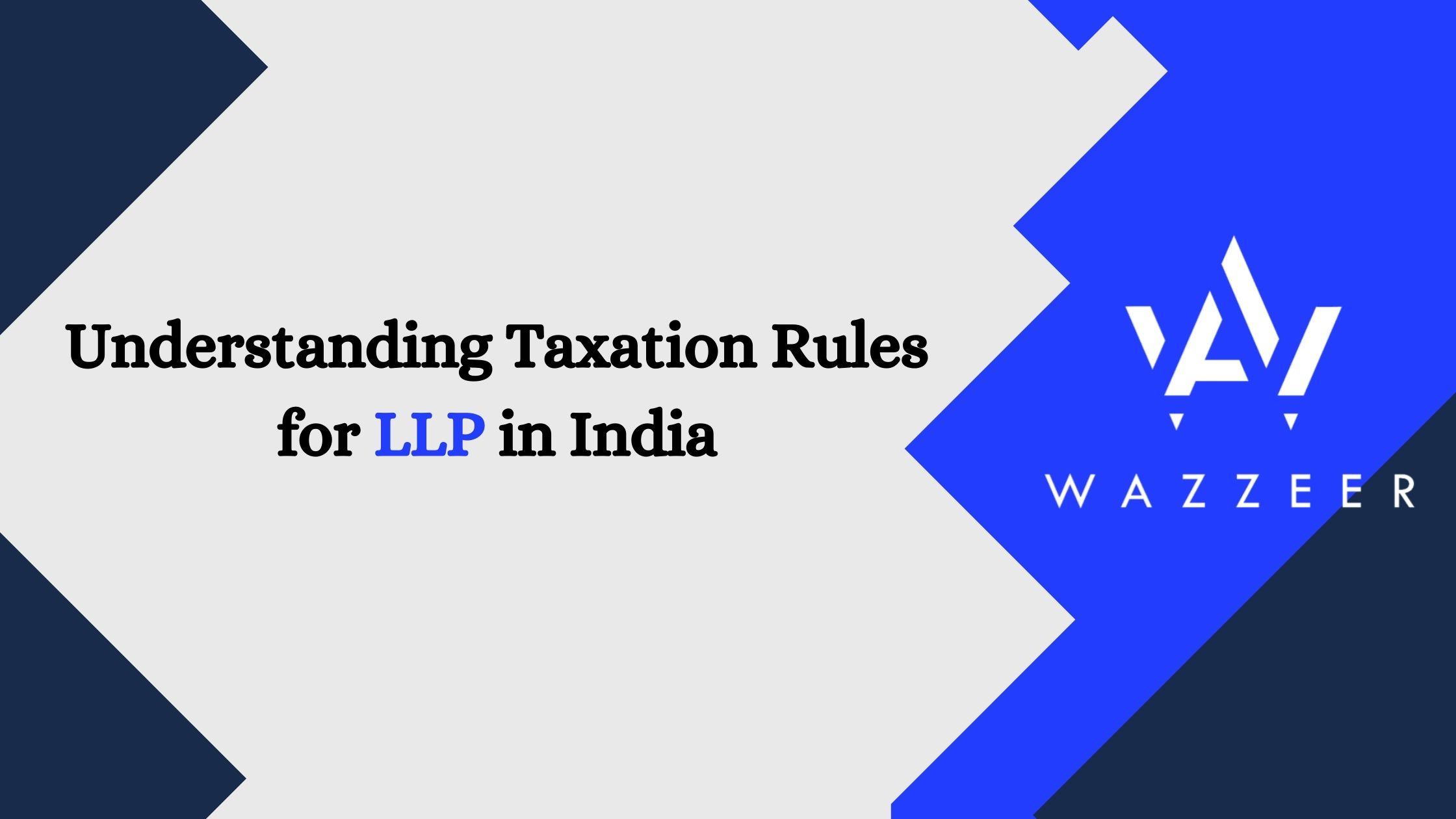Introduction
Limited Liability Partnerships (LLPs) have become a popular choice for entrepreneurs and professionals in India. The reason being their flexible structure and limited liability protection. However, there’s yet not clear understanding of the taxation rules for LLPs . In this guide, we will delve into the Understanding Taxation Rules for LLP in India. Providing valuable insights for business owners and professionals.
Taxation Rules for LLP in India: Overview
LLPs in India are governed by the Limited Liability Partnership Act, 2008. LLP are treated as separate legal entities for tax purposes. The taxation of LLPs is different from that of traditional partnerships and corporations. Here are the key taxation rules that LLPs need to adhere to:
1. Income Tax
LLPs are subject to income tax under the Income Tax Act, 1961. The profits of LLP are taxed at the applicable slab rates, similar to those for individuals. However, LLPs are not liable to pay tax on their income. Instead, the partners of the LLP partners are taxed on their share of profits.
2. Taxation of Partners
The next point in Understanding Taxation Rules for LLP in India is taxation of Partner. As the partners of an LLP are considered separate taxpayers. Thus, are taxed individually on their share of profits from the LLP. The share of profits is determined as per the LLP agreement. The partners are required to report their income from the LLP in their personal income tax returns.
3. Minimum Alternate Tax (MAT)
LLPs are also liable to pay Minimum Alternate Tax (MAT) under the provisions of the Income Tax Act. MAT is applicable if the tax payable by the LLP is less than a certain percentage of its book profits. However, LLPs are exempt from MAT for the first five years from the year of incorporation.
4. Goods and Services Tax (GST)
LLPs engaged in providing goods or services are required to register under the Goods and Services Tax (GST) regime. If their aggregate turnover exceeds the prescribed threshold. GST is levied on the supply of goods and services. It varies depending on the nature of the goods or services provided by the LLP.
Compliance Requirements
LLPs are required to comply with various tax filing and regulatory requirements to ensure compliance with the law. Some of the key compliance requirements for LLPs in India include:
- Filing of Income Tax Returns: LLPs are required to file their income tax returns annually with the Income Tax Department.
- Tax Deducted at Source (TDS): LLPs are required to deduct TDS on payments made to partners. Also, to other entities as per the provisions of the Income Tax Act.
- GST Filing: LLPs registered under the GST regime are required to file monthly, quarterly, and annual GST returns as applicable.
- Maintenance of Books of Accounts: LLPs are required to maintain proper books of accounts. Also, other financial records as per the provisions of the LLP Act.
Conclusion
Understanding the taxation rules for LLPs in India is crucial for business owners and professionals. It ensure compliance with the law and minimise tax liabilities. By following the applicable tax regulations and seeking professional guidance when needed. LLPs can streamline their tax processes and focus on their core business activities.
In conclusion, navigating and understanding the taxation rules for LLPs in India requires strict following of the applicable tax laws and compliance. Which means seeking professional guidance when needed like from team like ours at Wazzeer. Hence, LLPs can ensure compliance with the law and minimize tax liabilities, thereby contributing to their long-term success and sustainability.
